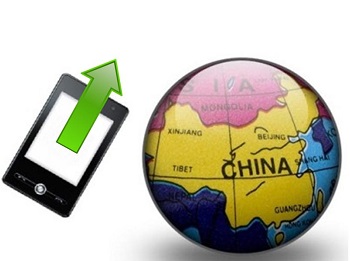While the biometrics trends have been focusing on fingerprints, the Chinese giant is looking at eyes.
Biometrics based mobile payment security is still in its early days. So far, certain companies, such as Apple, have introduced fingerprint scanning to verify a device user’s identity. However, Alibaba has something else in mind.
Alibaba’s payments and financial services affiliate, Ant Financial, recently announced new plans.
Ant Financial purchased EyeVerify for an undisclosed amount. EyeVerify is a startup based in Kansas City, Missouri. Reports have suggested that the acquisition may have been made for anywhere from $70 million to $100 million. This suggests that the e-commerce giant from China may be looking into a new kind of mobile payments security.
 Not only will this purchase provide the company with one more step in expanding its reach into the western market, but it also reveals an interest in biometric security. That type of technology analyzes biological features that can be detected with scanners. In the case of EyeVerify, the software they produce can analyze and recognize the veins on the sclera (the visible part of the eyeball that is white inc color).
Not only will this purchase provide the company with one more step in expanding its reach into the western market, but it also reveals an interest in biometric security. That type of technology analyzes biological features that can be detected with scanners. In the case of EyeVerify, the software they produce can analyze and recognize the veins on the sclera (the visible part of the eyeball that is white inc color).
This mobile payment security uses a smartphone’s front-facing camera to capture the vein patterns of the eye.
Once the pattern has been captured, it is recorded so that it can be used for certain mobile security features. These can include logging into an account or even unlocking a phone, similar to the way fingerprint scanners are currently used.
According to EyeVerify, this type of biometric security provides the same level of verification protection as a password of 50 characters in length.
Ant Financial first introduced biometric mobile payment security software into its Alipay app in July 2015. This was released exclusively to a small group of beta testers. The beta testers have the ability to log into their accounts using traditional password and/or fingerprint readings. That said, they can also choose to have their eyes scanned in order to log in.
Companies from China stand to gain a great deal from biometric security investments. The reason is that the country is facing a massive battle against online fraud and every new layer of security protection can go a long way.

 China’s mobile commerce space is already intensely competitive. The space is occupied by Alibaba, which is one of China’s largest e-commerce groups. The company currently holds a 70% market share in China’s mobile payments market. Tencent, another major Internet company in the country, holds a 19% market share in this market. Other companies are coming to China to find success in the growing mobile commerce market, but they may find very limited success due to the strong competition that exists within this space.
China’s mobile commerce space is already intensely competitive. The space is occupied by Alibaba, which is one of China’s largest e-commerce groups. The company currently holds a 70% market share in China’s mobile payments market. Tencent, another major Internet company in the country, holds a 19% market share in this market. Other companies are coming to China to find success in the growing mobile commerce market, but they may find very limited success due to the strong competition that exists within this space.